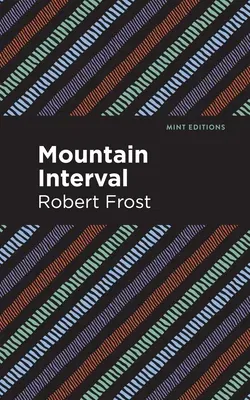Mountain Interval (1916) is a collection of poems by American poet
Robert Frost. Having gained success with his first two collections, both
published in London, Frost returned home to New Hampshire and completed
his third volume, Mountain Interval. The book opens with "The Road Not
Taken," and though this would become Frost's most famous poem, the
collection is not defined by it. Here we find the hallmarks of Frost's
work: rural landscapes, dramatic monologues, and subtle meditations on
the meanings of life and art. This is Frost at the height of his power,
a poetry that speaks as much and as often as it listens.
"The Road Not Taken" is a meditation on fate and free will that follows
a traveler in an autumn landscape, unsure of which path to take, but
certain he cannot stand still. Often summarized using only its final two
lines--"I took the one less traveled by, / And that has made all the
difference"--Frost's poem refuses such neat categorization. Far from
simple praise of independence, "The Road Not Taken" examines the anxiety
of choice, the psychic response to the uncertainty that precedes even
the simplest decision. In "Birches," Frost recalls his childhood
fondness for climbing trees, raising himself from the ground "To the top
branches," only to fling himself "outward, feet first" back to earth.
Against the backdrop of adulthood, in which "life is too much like a
pathless wood," the poet recalls the simplicity and wonder of being a
child in nature, no more and no less than "a swinger of birches.".
With a beautifully designed cover and professionally typeset manuscript,
this edition of Robert Frost's Mountain Interval is a classic of
American literature reimagined for modern readers.


